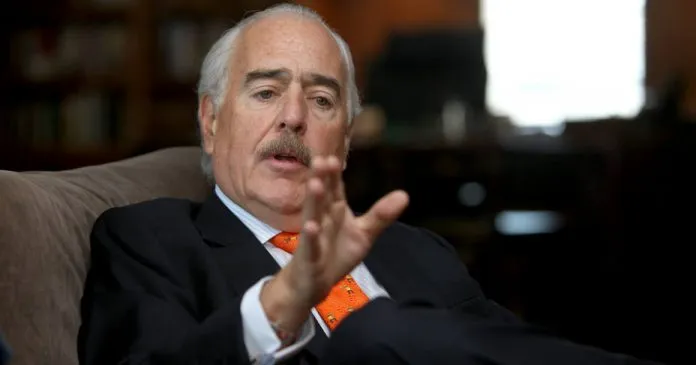Introduction
In the wake of the Venezuelan presidential election held on July 28, 2024, former Colombian President Andrés Pastrana has voiced a strong condemnation of Nicolás Maduro’s administration. Pastrana describes the election as a “coup d’état” and accuses Maduro of manipulating the electoral process to remain in power despite lacking popular support. This detailed examination explores Pastrana’s accusations, the broader implications for Venezuelan democracy, and the international response to the situation.
Andrés Pastrana’s Accusations
Allegations of Electoral Fraud
Andrés Pastrana, a prominent figure in the political landscape of Latin America and the President of the International Democratic Center (IDC), has openly criticized the Venezuelan elections. He asserts that the elections held on July 28, 2024, were marred by severe irregularities. According to Pastrana, these irregularities are indicative of a deliberate manipulation of the electoral process by Nicolás Maduro, aimed at consolidating his grip on power.
Pastrana’s remarks reflect a broader concern about the legitimacy of the electoral process in Venezuela. He contends that the election results, which declared Nicolás Maduro as the winner, do not reflect the true will of the Venezuelan people. Instead, he describes the elections as a “farce,” suggesting that the process was systematically undermined to favor Maduro’s administration.
The Impact on Venezuelan Democracy
Pastrana argues that the election’s outcome undermines Venezuelan democracy. He emphasizes that such actions by Maduro not only disrupt the democratic process within Venezuela but also pose a threat to regional stability. According to Pastrana, the Venezuelan leader’s actions are a blatant disregard for democratic norms and principles, which jeopardize the stability of the country and potentially the wider region.
The Response to Electoral Irregularities
Maduro’s Reaction and Government Actions
In response to the allegations and the crisis of legitimacy, Nicolás Maduro’s administration has taken several measures. These include attempts to suppress dissent and maintain control over the narrative surrounding the election results. The administration has faced accusations of employing violence and repression to stifle opposition voices, which Pastrana and other critics argue further exacerbate the crisis.
International Reactions
The international community has been vocal in its response to the situation in Venezuela. Various organizations and governments have called for greater transparency in the electoral process and have expressed concern about the reported irregularities. The demand for a detailed examination of the election results and a call for democratic integrity have been central themes in the international discourse surrounding the Venezuelan elections.
Human Rights and Democratic Principles
Allegations of Repression and Violence
Pastrana has criticized the Maduro administration for using violence and repression to silence opposition. He highlights the reported use of force against protesters and political dissenters as evidence of the regime’s disregard for human rights. These actions, according to Pastrana, represent a severe violation of democratic norms and principles.
The Call for International Intervention
Pastrana’s statement underscores the need for a decisive international response. He argues that sustained international pressure, coupled with internal mobilization by Venezuelans, is crucial for effecting real and lasting change. The call for international intervention is framed as essential for upholding democratic values and ensuring that the true will of the Venezuelan people is respected.
The Path Forward
The Role of the International Community
Pastrana advocates for urgent and firm action by international organizations. He calls on global bodies to address the situation with the seriousness it warrants and to support efforts to restore democratic integrity in Venezuela. This includes acknowledging the true results of the presidential election and taking steps to hold those responsible for electoral manipulation accountable.
Internal Mobilization and Resistance
Alongside international pressure, Pastrana emphasizes the importance of internal mobilization. He believes that the Venezuelan people must continue to resist and advocate for their democratic rights. This internal resistance, combined with international support, is seen as key to challenging the current regime and pushing for a genuine democratic process.
Conclusion
Andrés Pastrana’s denunciation of Nicolás Maduro’s electoral practices highlights a significant moment in Venezuela’s ongoing political crisis. His allegations of a manipulated electoral process and calls for both international intervention and internal mobilization reflect deep concerns about the state of democracy in Venezuela. As the situation unfolds, the international community and Venezuelan citizens face the challenge of addressing these issues to restore democratic norms and ensure a just resolution.
For continued updates and comprehensive coverage on regional developments, visit our Latin America section.



